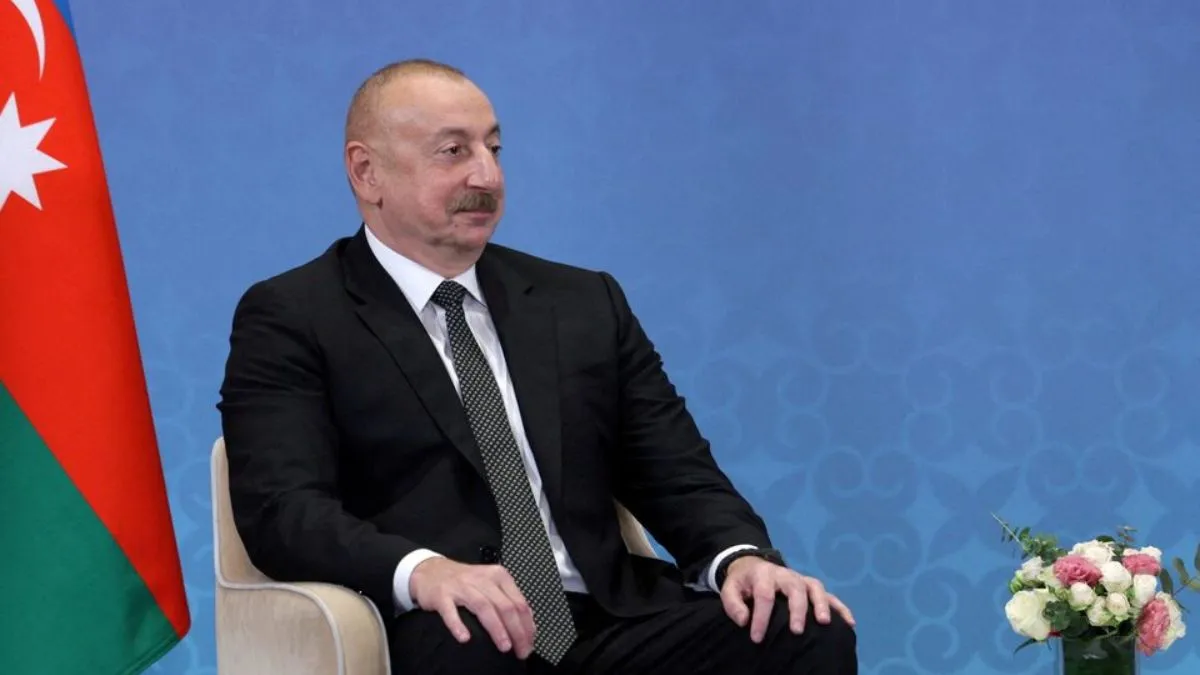- By Ajeet Kumar
- Tue, 02 Sep 2025 04:35 PM (IST)
- Source:JND
Azerbaijan President Ilham Aliyev, who openly backed Pakistan-sponsored terrorism against India, has been at the centre of multiple controversies for decades. Aliyev, who came into power in 2003, is also dubbed a “dictator” due to the authoritarian nature of his government.
Critical for New Delhi, his own government has faced massive criticism inside his own country for curtailing journalists' rights and freedom of expression. Amnesty International and Human Rights Watch, a Human rights organisation, documented the arbitrary detention of journalists, activists, and opposition parties on politically motivated charges. On multiple ocassions, he backed Pakistani-terrorists, who attacked India and killed hundreds of innocent people over the years. In recent Pahalgam terror attack, Aliyev was one of the few leaders in the world who openly supported Islamabad.
Ilham Aliyev: A dictator
In 2024, Aliyev’s government started a massive crackdown on critics’ families, freezing their bank accounts as a form of collective punishment, months before the Presidential elections. Publications that dared to publish news articles that were termed critical of Aliyev’s government faced brutal raids. The journalists were charged with currency smuggling— a charge which is yet to be proved in court.
In order to remain in power, his government made constitutional changes in 2009 and 2016 that removed term limits and lengthened terms to seven years. In the last so-called presidential elections, his party gained 92 per cent of the vote, but none of the international observers described it as fair. Opposition parties often boycott elections due to unfair conditions.
Nagorno-Karabakh conflict and ethnic cleansing
The 63-year-old President has also been criticised for his ethnic cleansing moves. In 2023, Azerbaijan’s military offensive to take Nagorno-Karabakh resulted in a mass exodus. Although his government denied these claims by dubbing the move an “anti-terror” mission, it drew global condemnation. Those who were forced to leave the place narrated a harrowing experience of torture by the Aliyev administration.
Sunnification
Besides, his regime is also known for promoting Sunnification— a group of Islamic followers who believe leadership should be determined by consensus and that the Prophet Muhammad's first successor, Abu Bakr. In order to impose Sunnification, media reports claimed he suppressed Shia (conversely, they believe Muhammad appointed his cousin and son-in-law, Ali ibn Abi Talib, and his descendants as his rightful successors, forming their own distinct religious hierarchy) followers to tighten control and align with Turkey.
Corruption
Azerbaijan’s President and his family have been involved in corruption scandals. The most popular one— “Azerbaijani Laundromat”— was a money-laundering scheme uncovered in 2017 that allegedly funneled funds to bribe European politicians to deflect criticism and promote Azerbaijan’s image.
In 2012, Aliyev was named “Corruption’s Person of the Year” by the Organised Crime and Corruption Reporting Project (OCCRP). His regime’s use of oil wealth to influence foreign officials, dubbed “caviar diplomacy,” has been criticized for undermining democratic processes.


